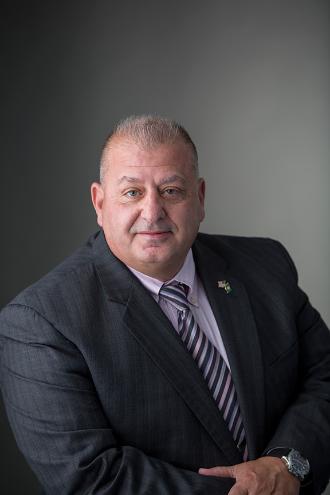Touro College School of Health Sciences’ Joseph Tommasino Makes His Mark on National Cholesterol Study
Military Service Fueled His PA Passion

There’s one topic that’s off the table when Joseph Tommasino and his wife join their four grown children and nine grandchildren for Sunday dinners. “Cholesterol,” Tommasino says, laughing. “We do not talk about cholesterol.”
Nothing personal. Tommasino’s cholesterol levels are fine. Lipids entered his life when he was invited to join the American College of Cardiology/American Heart Association Task Force on Clinical Practice Guidelines for the Management of Blood Cholesterol. Among a myriad of other responsibilities and expectations, every Tuesday for 18 months, Tommasino had to participate in a three-hour conference call with some 50 of the most illustrious physicians and other experts on cholesterol. He was the sole physician assistant (PA) invited to the team. “At first I thought, ‘oh my goodness, what have I gotten myself into?’” recalls Tommasino, 60, a professor and practicing PA with a specialty in cardiology and cardiac surgery. “It was a lot of pressure. But I could not let my profession down.”
By all accounts, Tommasino made his profession proud. Released in November 2018, the updated guidelines included: that high cholesterol, at any age, can increase a person’s lifetime risk for heart disease and stroke; a recommendation for more risk assessments to help health care providers better determine a person’s individualized risk and treatment options; for some a coronary calcium score can help determine the need for cholesterol-lowering treatment and while statins are still the first choice of medication for lowering cholesterol, new drug options exist for people who have had a heart attack or stroke and are at higher risk of having another.
Barely was Tommasino's commitment to the cholesterol guidelines group over when he was invited and accepted a three-year appointment to the prestigious Cardiology Section Leadership Council for The American College of Cardiology. Honors and studies aside, Tommasino doesn’t let anything interfere with his assistant dean duties of overseeing 329 students, treating patients as a practicing PA and staying on top of administrative musts. But his load has been lightened in one area. “I’m not a Colonel, anymore,” says the Brooklyn-born Tommasino. “I just retired, after 28 years of active and reserve service.”
Did you say Colonel, sir? “When I was about to graduate from high school, the plan was that I would go to West Point, but I was burned out and told my father I wanted to take some time off,” he explains. Tommasino’s father, a Korean War veteran, one among many in the extended family who had served proudly in the military, was not down with his son’s plan to hang around the house. “He took me down to the Army recruiter,” Tommasino says, ruefully. “I enlisted.”
The U.S. Army was where Tommasino discovered his lifelong profession and passion. He was an Army medic in the 82nd Airborne Fort Bragg, North Carolina. His supervisors happened to be physician assistants. Whether handling routine illnesses or battle injuries, Tommasino was mesmerized by their knowledge and compassion. After completing his active duty stint, Tommasino, who remained in the U.S. Army and rose through the ranks as a reservist, went on to receive his college degrees, including a Ph.D in Health and Exercise Science. “I still love it,” he says of being a PA. “Teaching it and practicing it. And no one offers a better program than Touro. We don’t do average here. Anything less than excellent is unacceptable!"
Yes, sir, Colonel, sir.

